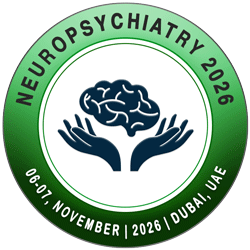Track: Adult Neurogenesis

The "Adult Neurogenesis" track focuses on the fascinating field of adult neurogenesis—where new neurons are generated in the adult brain—and the neuroimaging techniques used to study this process. This session explores how neurogenesis in regions such as the hippocampus contributes to learning, memory, and neuroplasticity, and how disruptions in this process are linked to various neurological and psychiatric disorders. Participants will learn about cutting-edge neuroimaging technologies used to visualize and measure neurogenesis, alongside the latest research into how adult-born neurons influence brain function.
Mechanisms of Adult Neurogenesis:
This session explores the biological processes underlying adult neurogenesis, including the molecular signalling pathways, stem cell activity, and environmental factors that regulate the production of new neurons in the adult brain. Emphasis will be placed on the hippocampus and its role in memory formation, mood regulation, and cognitive function.
Neurogenesis and Neuroplasticity:
This topic addresses the relationship between adult neurogenesis and neuroplasticity—the brain’s ability to reorganize and form new neural connections. Discussions will include how neurogenesis contributes to learning and memory, brain repair following injury, and the potential for enhancing cognitive function through environmental enrichment and therapeutic interventions.
Neuroimaging Techniques to Study Adult Neurogenesis:
Explore the latest neuroimaging techniques used to study adult neurogenesis in vivo. Topics will include magnetic resonance imaging (MRI), positron emission tomography (PET), and advanced methods like magnetic resonance spectroscopy (MRS) to visualize and measure neural stem cell activity and neurogenesis in the adult brain.
Role of Adult Neurogenesis in Mental Health:
This session will focus on the role of adult neurogenesis in mental health disorders, particularly in depression, anxiety, and post-traumatic stress disorder (PTSD). Attendees will learn how impairments in neurogenesis are linked to these conditions and how neuroimaging is used to assess changes in neurogenesis during mental health treatments, such as antidepressant therapies.
Impact of Aging on Adult Neurogenesis:
This session examines how aging affects the capacity for adult neurogenesis, particularly in the hippocampus. Discussions will include the decline in neurogenic potential with age and its potential impact on cognitive decline, memory loss, and age-related neurodegenerative diseases like Alzheimer’s disease. The role of neuroimaging in detecting these age-related changes will also be discussed.
Exercise, Diet, and Adult Neurogenesis:
Explore the influence of lifestyle factors such as physical exercise and diet on the rate of adult neurogenesis. This topic will cover how interventions like exercise, caloric restriction, and brain-healthy diets can promote neurogenesis and enhance cognitive function, with a focus on neuroimaging techniques used to monitor these changes in the brain.
Adult Neurogenesis and Neurodegenerative Diseases:
This session will explore the potential link between neurogenesis and neurodegenerative diseases such as Alzheimer's, Parkinson’s, and Huntington’s. The discussion will include whether enhancing neurogenesis could be a therapeutic strategy for these conditions and how neuroimaging is used to track neurogenic activity in affected brain regions.
Translational Applications of Adult Neurogenesis Research:
This topic covers the translational applications of adult neurogenesis research in the development of new therapies for neurological disorders. It will focus on how findings from animal models are being applied to human clinical studies, as well as how neuroimaging is advancing these efforts in both preclinical and clinical settings.
Brain-Computer Interfaces and Adult Neurogenesis:
Explore the intersection of adult neurogenesis and brain-computer interfaces (BCIs). This session will examine how BCIs, combined with neuroimaging techniques, are being used to facilitate neurogenesis in individuals with brain injuries or neurodegenerative diseases and how neurogenesis may enhance the effectiveness of BCI technologies.
Neural Stem Cells and Neurogenesis in the Adult Brain:
This session will focus on the role of neural stem cells in adult neurogenesis. Topics will include the differentiation of these stem cells into functional neurons, the role of growth factors, and how this process is visualized and studied using neuroimaging techniques to assess the effectiveness of stem cell-based therapies.
Psychopharmacological Approaches and Neurogenesis:
This topic addresses the impact of psychopharmacological treatments, including antidepressants and antipsychotics, on adult neurogenesis. The session will explore how these medications influence neurogenesis in the adult brain, how neuroimaging is used to track these changes, and the implications for treating psychiatric disorders.
This track will offer cutting-edge insights into the intersection of adult neurogenesis and neuroimaging, providing valuable knowledge for clinicians, researchers, and neuroscientists dedicated to understanding and enhancing brain health
Scientific Highlights
- Advances in Neuropsychiatry
- Cognitive and Behavioural Neuroscience
- Mental Health and Psychology
- Neurological Disorders
- Child and Adolescent Psychiatry
- Neuro Oncology
- Paediatric Neurology
- Central Nervous System and Neuropathology
- Neuroimaging and Brain Mapping
- Adult Neurogenesis
- Neuro Ophthalmology & Visual Neuroscience
- Neurosurgery
- Neuropharmacology and Neuroendocrinology
- Neurotechnology and Neurorehabilitation
- Neuro Anatomy


